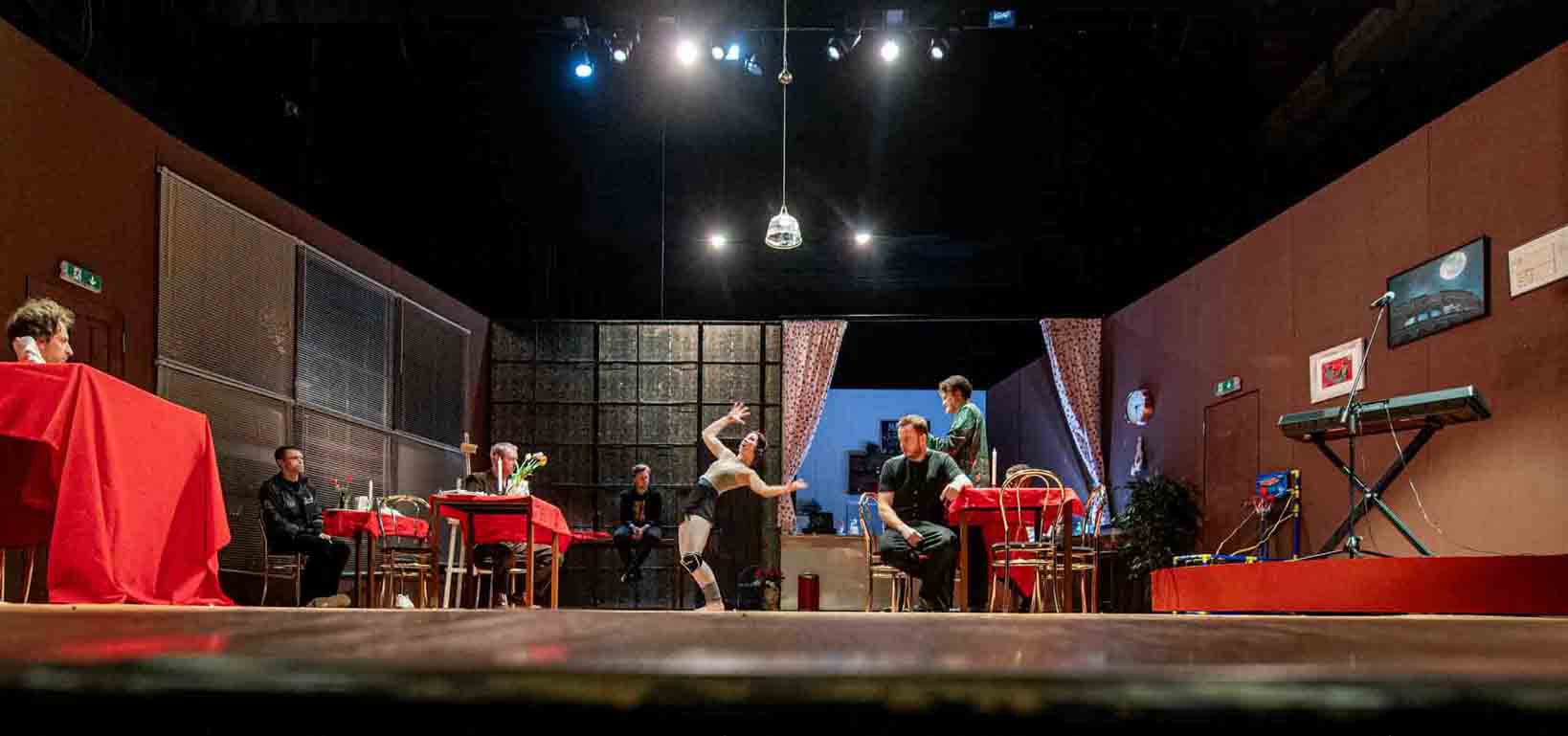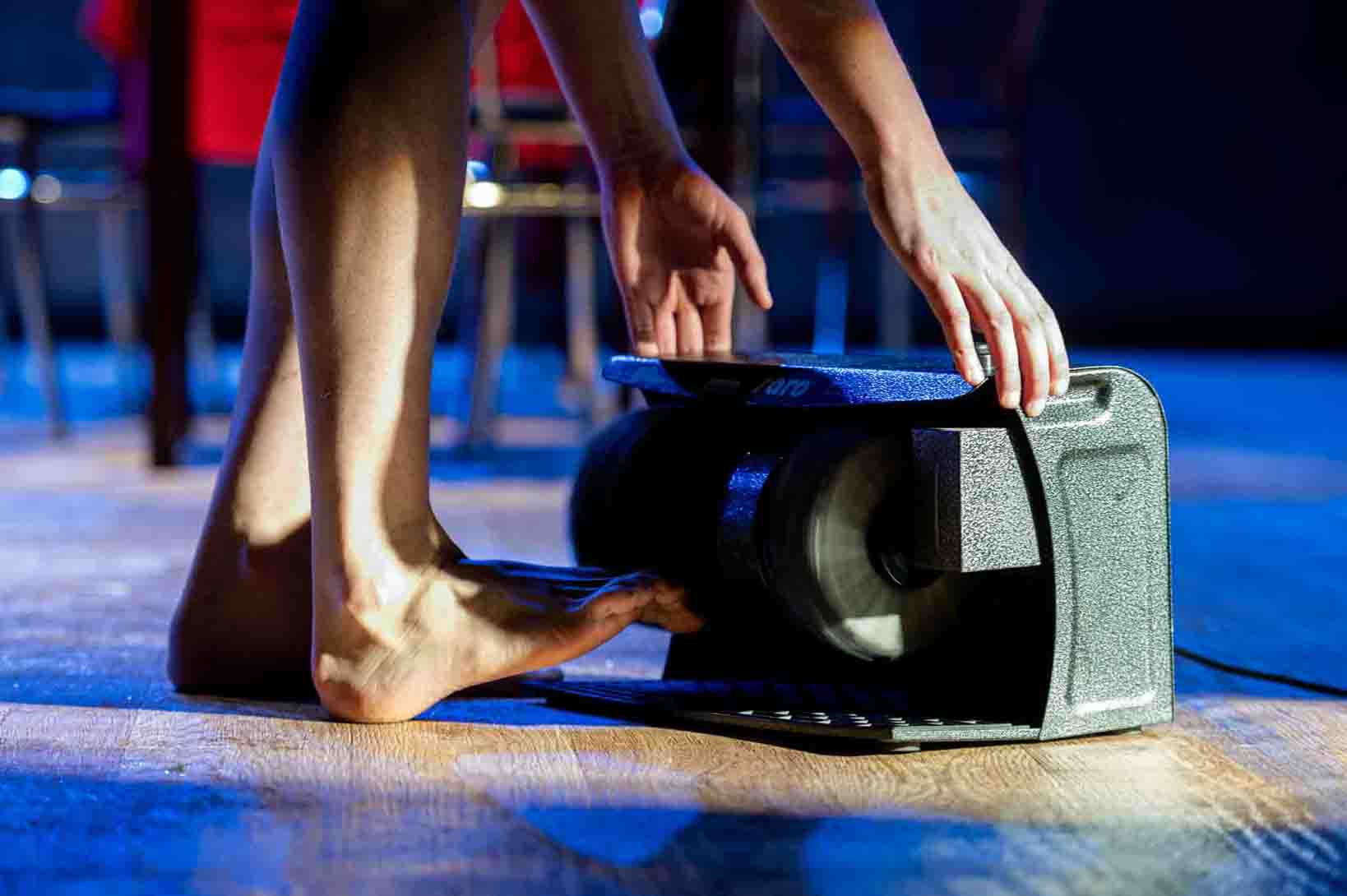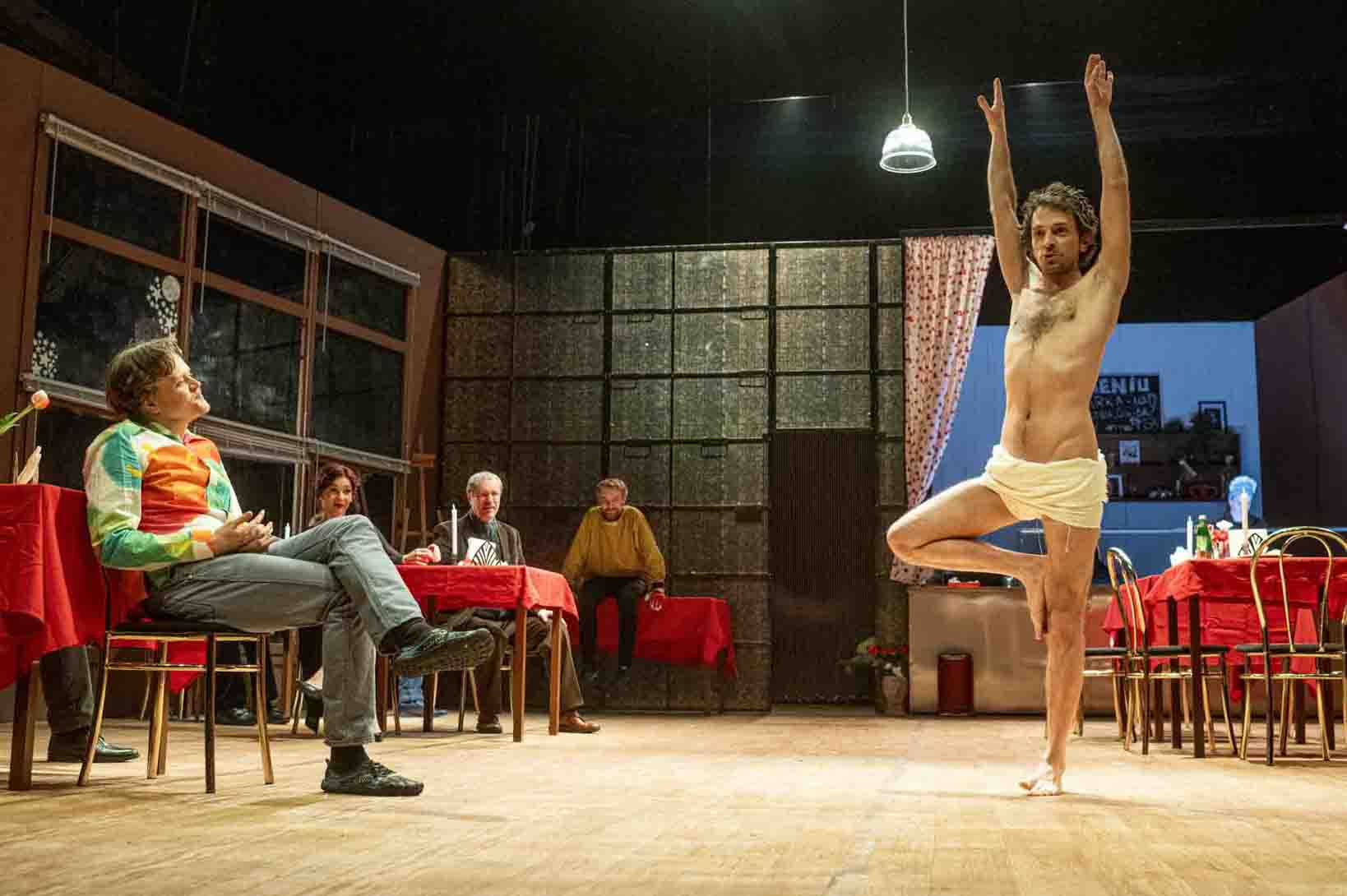Albert Camus’s philosophical play Caligula has a historically-centred plot, but it would be inaccurate to call it a traditional historical drama. In Caligula, the author was mainly concerned with encapsulating the ideas of denial and affirmation, absurdity and rebellion, hope and faith, which are characteristic of his philosophy and artistic consciousness.
The plot seems simple: the Roman emperor Caligula suffers after the death of his sister and concubine Drusilla. The loss of a loved one changes the ruler, directly affecting his own relationship with those around him and his view of the Roman Empire. Caligula begins to cause commotion, to ‘disturb the peace of Rome’. Caligula doesn’t just quarrel with others, he starts killing – countless hypocrites, sycophants and their innocent relatives are put to death. It becomes clear that the emperor, who appears to have the mindset of a serial killer, is a man who experiences the absurd – and that the killings are a sophisticated way of educating those around him. The play ends with Caligula’s moral downfall and his double confession: to his mistress Caesonia and to himself. According to the philosopher Vincentas Klipčius, metaphorically speaking, Caligula is left in a state of borderline insanity on a pile of human bones – in a world completely hollowed out and gnawed away by corrosive death.
With its dramatic action and the protagonist’s ambitious cold-bloodedness, the play is still striking to this day. It forces the audience to reflect on the relationship between the government and the individual, drawing attention to the present-day context. The play remains relevant, addressing people’s experiences and relationship with authority as well as moral dilemmas in the contemporary world. Caligula himself can be interpreted as a character who has cultivated a sense of anxiety and dissatisfaction with the state of modernity. He seeks to purify the existence itself – to baptise it with fire. Here, Caligula is a figure searching for a new path, for radical change brought out by cleansing the old world with blood. As both environmental problems and international conflicts become increasingly acute, Caligula is an invitation to reflect on how personal and political will can influence the fate of the planet.
The contemporary human experience is often fraught with anxiety about environmental disasters, global tensions and social inequality. Perhaps it is time to finally realise that we are inhabitants of a single planet which has a future? Caligula can be a symbolic reminder of the importance of choosing the right path in today’s global arena. Do we choose darkness and destruction, or can we still find a way to save the world?
“The performance is set in a theatre café. It is a vague in-between zone, a microcosm where waves of reality and illusion converge. Caligula’s actions – similar in nature to an artistic feud – reveal the dark side of human nature and consciousness. Not only does he raise questions, but also becomes an attribute of the connection between human beings and celestial bodies. In the labyrinth of freedom, Caligula is a hostage who celebrates martyrdom as liberation, proclaiming that true existence can only be revealed through suffering. Such an interpretation creates a formula where the opposites – courage and fear – fall like columns on a man’s feet, crushing them as Caligula enters the world. He is a man exploring the dark space of theatre, where shameplants, gilded with stage lights, blossom as a sign of an inscrutable storyline.” (director Jokūbas Brazys)
“Jonas Vaitkus, Ignas Jonynas, Agnius Jankevičius, Vidas Bareikis, Eimuntas Nekrošius – many Lithuanian directors have staged this drama. However, as Jokūbas Brazys has summed up to the audience in a single sentence, ‘it is important to analyse Camus at least once every decade’. <…> Now it is fashionable to build worlds, atmospheres. Brazys’s atmosphere is very theatrical. He, like no other, excels in creating theatre within theatre and immersing the viewer in multi-layered reflections, primarily related to the overarching theme of a given production. This young director <…> has managed to strike a blow with Camus through Camus.” (theatrologist Daiva Šabasevičienė)


CALIGULA
The Old Theatre of Vilnius
Grand Hall
Duration 3.50
Premiere 2024
Author Albert Camus
Director Jokūbas Brazys
Set designer, costume designer Karolina Fiodorovaitė
Light designer Karolis Zajauskas
Composer Mantas Mockus
Assistant director Nadežda Pereverzeva
Set designer’s assistant Augustė Smaliukaitė
Translated from French Birutė Gedgaudaitė
Cast: Artur Svorobovič, Edita Gončarova, Viačeslav Lukjanov, Artūras Aleksejevas, Valentin Novopolskij, Aleksandr Kanajev, Igoris Abramovičius, Maksim Tuchvatulin, Dmitrij Denisiuk, Jekaterina Makarova, Liuda Gnatenko, Vladimir Dorondov
Premiere 2024
Author Albert Camus
Director Jokūbas Brazys
Set designer, costume designer Karolina Fiodorovaitė
Light designer Karolis Zajauskas
Composer Mantas Mockus
Assistant director Nadežda Pereverzeva
Set designer’s assistant Augustė Smaliukaitė
Translated from French Birutė Gedgaudaitė
Cast: Artur Svorobovič, Edita Gončarova, Viačeslav Lukjanov, Artūras Aleksejevas, Valentin Novopolskij, Aleksandr Kanajev, Igoris Abramovičius, Maksim Tuchvatulin, Dmitrij Denisiuk, Jekaterina Makarova, Liuda Gnatenko, Vladimir Dorondov







 Back
Back 












